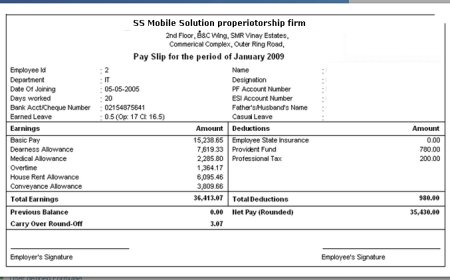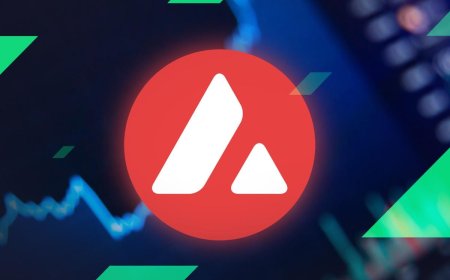Top 10 ZK Tech Frameworks Every Developer Should Know
Explore the top 10 ZK tech frameworks developers use to build secure, scalable, and privacy-focused Web3 apps in 2025.

Zero-Knowledge (ZK) technology is redefining the way we think about privacy, scalability, and trust in Web3 systems. As blockchain platforms move toward more efficient and privacy-preserving infrastructures, developers are rapidly embracing ZK frameworks to build secure and scalable dApps. In 2025, ZK proofs have become mainstream powering Layer 2 rollups, identity systems, private transactions, and more. This blog explores the Top 10 ZK tech frameworks every developer should know in 2025. Whether you're building on Ethereum, Solana, or a custom L1, these frameworks will help you harness the power of ZK cryptography to build futuristic and secure decentralized applications.
1. zkSync (Matter Labs)
zkSync is a Layer 2 ZK-rollup solution developed by Matter Labs and built on Ethereum. It's one of the most prominent ZK frameworks aiming to scale Ethereum without sacrificing security or decentralization.
zkSync uses zero-knowledge proofs to batch thousands of transactions and confirm them on Ethereum. This drastically reduces gas fees and improves throughput. zkSync 2.0 introduced zkEVM compatibility, enabling developers to build smart contracts using Solidity with minimal changes.
The zkSync SDK provides tools for integrating wallet functionality, payment channels, and custom contracts. With zkSync Era now live, developers have access to a production-ready environment for ZK Tech development apps with high throughput and low fees. The framework offers excellent documentation, API support, and a growing ecosystem of wallets, games, and DeFi dApps.
Ideal for: Ethereum developers looking to scale dApps using zkEVM with familiar tools like Solidity and Hardhat.
2. Starknet (StarkWare)
Starknet is a permissionless decentralized ZK-Rollup developed by StarkWare. Unlike zkEVM-based frameworks, Starknet uses STARK proofs instead of SNARKs, which are quantum-resistant and dont require trusted setups.
Starknet introduces a new language called Cairo, designed specifically for writing ZK-friendly programs. While it comes with a learning curve, Cairo enables developers to build highly efficient and scalable smart contracts that leverage the unique performance of STARKs.
The Starknet ecosystem includes tools like Voyager (explorer), Argent X (wallet), and a growing suite of DeFi and gaming apps. Starknet is ideal for teams that want the highest throughput possible and are willing to learn new syntax for better scalability.
Ideal for: Developers who want to explore cutting-edge ZK scalability using STARK proofs and are comfortable learning a new language like Cairo.
3. Polygon zkEVM
Polygon zkEVM is one of the most developer-friendly ZK-rollup solutions that fully replicates Ethereums Virtual Machine, allowing existing Ethereum-based dApps to deploy without code modification.
Backed by Polygon Labs, zkEVM is designed to bring Ethereum-level security and low gas fees by using SNARK-based rollups. It supports Solidity, Vyper, and standard Ethereum tooling such as Remix, Truffle, and Hardhat.
What makes Polygon zkEVM stand out is its seamless migration path for Ethereum developers. Its active developer community and comprehensive documentation make it one of the easiest ways to get started with ZK in a production environment.
Ideal for: Ethereum-native developers seeking a frictionless transition to ZK scalability while keeping Solidity and existing toolsets.
4. Aztec Network
Aztec is a privacy-first ZK framework that supports private smart contracts through zkSNARKs. Its protocol, known as Aztec Connect, allows developers to integrate privacy into Ethereum dApps without the need for Layer 1 modifications.
Aztec's unique selling point is its hybrid model combining privacy with programmability. It uses Noir, a domain-specific language designed for writing private logic. Noir enables developers to create complex, zero-knowledge dApps with encrypted state and data.
With real-world use cases in DeFi privacy and financial anonymity, Aztec is ideal for teams building stealth payments, private DAOs, or confidential voting systems.
Ideal for: Developers focused on building privacy-centric dApps using zkSNARKs and encrypted smart contract logic.
5. Scroll
Scroll is an open-source zkEVM Layer 2 solution that emphasizes EVM compatibility and decentralization. It uses zkRollups to batch and prove transactions efficiently while maintaining Ethereum's security model.
Unlike other ZK frameworks that sacrifice usability for performance, Scroll aims for a balance offering zkEVM capabilities while maintaining familiar development workflows. It supports Solidity and is compatible with tools like MetaMask, Hardhat, and Foundry.
Scrolls testnet and mainnet are increasingly attracting developers interested in performance, simplicity, and Ethereum alignment. With its bytecode-level compatibility, you can deploy Ethereum dApps to Scroll without recompiling.
Ideal for: Developers looking for a seamless zkEVM experience that prioritizes decentralization and usability.
6. Mina Protocol
Mina is a lightweight Layer 1 blockchain using recursive zk-SNARKs to keep its chain size tiny (22KB). It enables developers to build zkApps smart contracts powered by zero-knowledge cryptography.
Instead of hosting heavy data on-chain, Mina allows dApps to run off-chain computations and prove their correctness with zk-SNARKs. This model reduces blockchain bloat while maintaining integrity.
Mina introduces SnarkyJS, a JavaScript library that allows developers to build zkApps in a familiar syntax. This lowers the barrier for front-end developers to enter the ZK world.
Ideal for: JavaScript developers and teams wanting lightweight, privacy-preserving applications on a minimal Layer 1.
7. Aleo
Aleo is a privacy-focused ZK framework built using zero-knowledge proofs and zero-knowledge virtual machines (zkVMs). It offers full programmability, allowing smart contracts to be executed privately off-chain and verified on-chain.
The core of Aleos developer experience lies in Leo, a domain-specific language inspired by Rust. It is tailored to writing private smart contracts and zero-knowledge circuits.
Aleo provides powerful SDKs and tooling, including a zkCloud IDE and easy-to-use testing environments. Its architecture supports applications like private DeFi, decentralized identity, and encrypted messaging.
Ideal for: Rust/Rust-inspired developers looking to build advanced privacy-preserving applications on a ZK Layer 1.
8. Risc Zero
Risc Zero is a zkVM framework that enables developers to prove the correctness of general-purpose programs written in any language that compiles to RISC-V (such as C++, Rust, or Go).
Instead of requiring you to write custom circuits or learn DSLs, Risc Zero lets you generate proofs from mainstream applications. Its especially valuable for off-chain computation verification, machine learning, and DAOs.
The framework provides a "ZK Coprocessor" modeldevelopers write regular programs, and Risc Zero handles the proving/verification behind the scenes. Its zero-knowledge machine architecture enables broader use cases beyond crypto.
Ideal for: Developers looking to integrate ZK into general-purpose or Web2-native applications without circuit design.
9. zkSNARK Circom + SnarkJS
Circom is a domain-specific language used to write arithmetic circuits for zkSNARKs. Paired with SnarkJS, it allows developers to build, test, and verify zk circuits in a JavaScript environment.
Circom is widely used for projects that require fine-grained control over ZK logic such as Tornado Cash, Semaphore, and ZK identity systems. It gives developers flexibility in creating custom ZK protocols, although it requires a strong grasp of mathematics and circuit design.
While not a Layer 2 rollup, Circom is essential for developers building ZK primitives, decentralized identities, and reputation systems.
Ideal for: Advanced developers creating custom zero-knowledge circuits and privacy primitives from scratch.
10. Zokrates
Zokrates is an open-source toolbox for zkSNARKs on Ethereum, offering high-level abstraction and straightforward syntax. Built in Rust, Zokrates allows developers to write ZK programs using its proprietary DSL, then compile, generate proofs, and verify on-chain.
Zokrates integrates seamlessly with Ethereum smart contracts and is well-suited for on-chain verification of off-chain computations. It also offers WebAssembly support for cross-platform use.
Its especially useful for educational purposes, prototype development, and applications requiring transparent zkSNARKs.
Ideal for: Developers looking for Ethereum-integrated zkSNARK tooling with readable syntax and modular design.
Conclusion
In 2025, ZK tech isn't a futuristic ideal its an essential toolkit for modern decentralized applications. Whether you're a DeFi founder, NFT developer, or privacy advocate, mastering at least one of these frameworks is crucial for building secure, scalable, and future-proof applications.





























